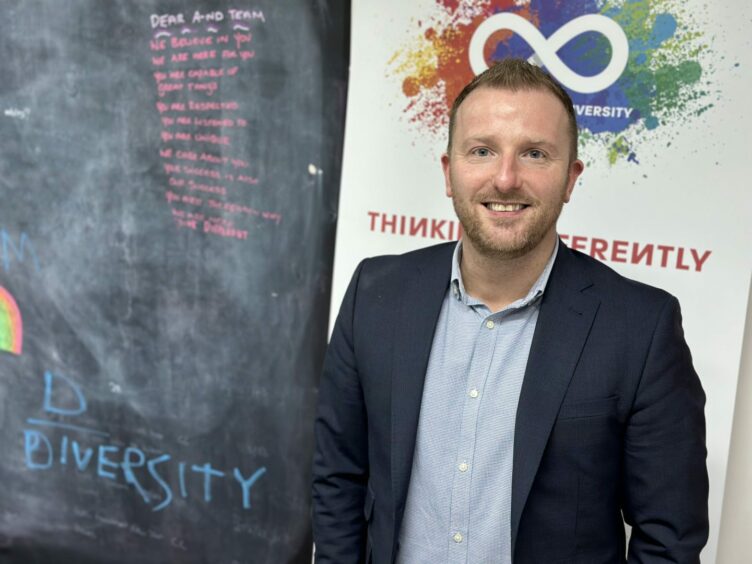
Is the energy sector shooting itself in the foot by not catering to up to 20% of the workforce? Neurodiversity experts share how minor changes can increase productivity.
As the industry faces a skills shortage and firms look to ramp up recruitment to deliver the energy transition, some recommend changes to welcome the 15-20% of workers who are neurodiverse into energy jobs.
This Neurodiversity Celebration Week (18-24 March) Energy Voice spoke to some experts on how to make “reasonable adjustments” in order to support neurodiverse workers.
Neurodiversity is a term used to describe the 15-20% of the population that have “alternative thinking styles”, specialist psychological consultancy firm Lexxic describes in its ‘Neurodiversity Smart Employer Guide’.
In the Lexxic document, the firm gives recommendations for adjustments to workplaces, how leadership and company culture can support neurodiverse workers, inclusive recruitment strategies and more.
Identifying pain points in the workplace
Helen Musgrove, director of psychological consulting for Lexxic said: “I would always suggest that organisations look to take action at a few different levels.”
Ms Musgrove went on to explain firms should look to make changes at both an “individual level” and an “organisational level as well”
“Partly it’s about the support that you provide to specific individuals and making sure that they have access to and tailored workplace adjustments and individual support from their manager, arranged in collaboration with their HR team and that they have a kind of a management and that works to understand and support them to develop their strengths as well as address any challenges that they might experience in their specific role.”
Looking to wider organisation-level changes, the director of psychological consulting pointed to Lexxic’s “Neurodiversity Smart model”.
“That looks at changes you can make across your employee life cycle and your customer experience as well to become more neuro-inclusive.
“It’s looking at barriers that individuals might experience in your recruitment systems, your talent management processes, your physical working environment and the types of communications that you have as an organisation.”
Energy firms looking to be more neuro-inclusive
Identifying the areas where changes are needed is important but it counts for nothing if these adjustments don’t come into place.
“Shouting about your commitment is great. It’s not enough without the action,” said Ms Musgrove.
One group that has plenty of experience with supporting energy firms to introduce neuro-inclusive adjustments is Billy Alexander’s Autism and Neurodiversity North Scotland (A-ND).
Global E&C, Aker Solutions and Serica all enlist the help of A-ND to promote diversity within their organisation and make their workplaces a more comfortable place for neurodiverse employees.
Speaking on his current work with energy firms, A-ND’s chief executive Billy Alexander said: “We’ve been doing a lot of work with Stork at the moment, and we’ve delivered a number of sessions to their key leadership team.”
Mr Alexander said that Stork’s sessions were led “beautifully” by a neurodiverse member of staff.
“Fundamentally what we’ve seen is major results for that individual now reporting far greater productivity, far greater results.
“They have had a promotion and a change in job and the understanding that they’ve experienced from the organisation, their team, it’s a brand new organisation for them all together, which is stunning to hear and see.”
Lexxic also works with energy firms through its Neurodiversity Smart, namely Centrica.
Making ‘reasonable adjustments’
To achieve this heightened productivity from neurodiverse workers Billy Alexander and the A-ND team recommend the firms they work with make “reasonable adjustments.”
For Mr Alexander, meaningful changes start with leadership. He said: “Unless it comes from the top down, it won’t happen and that’s absolutely key and it starts with awareness and training of the most senior leaders and organisations and then good practice sharing.”
Making changes from the start of an employee’s time with a company can help. Mr Alexander recommends sending candidates questions ahead of time, if reasonable, to avoid unnecessarily putting people on the spot.
Providing standing desks that allow workers prone to fidgeting to switch between sitting at a desk and standing up has also helped some of the firms A-ND has worked with. Purchasing noise-cancelling headphones can also help those with sensory sensitivity, Mr Alexander added.
Implementing changes also benefits firms in solving challenges as diversity of thought grows when more that have different ways of thinking collaborate.
Helen Musgrove explained: “I think that a lot of the strengths that divergent individuals often have are some of the skills that the sector most needs for its future.
“You’ve got challenges in the energy sector around some of those things like the energy transition that just requires new ways of thinking about things that require different solutions, requires problem-solving skills, analytical skills, technology related skills as well. All of those things are strengths that we often see amongst neurodivergent individuals.”
Recommended for you


 © Supplied by Lexxic
© Supplied by Lexxic © Supplied by ThinkPR
© Supplied by ThinkPR